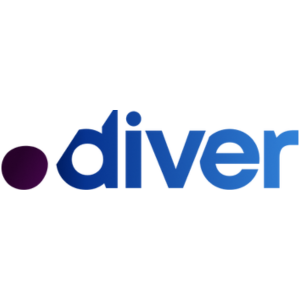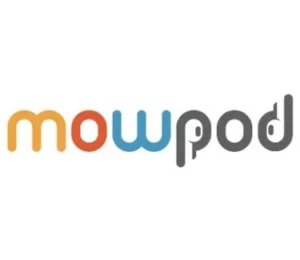Voice Search Week: Building a Voice Search Content Strategy // Courtney Cox Wakefield
Courtney Cox Wakefield
cwake.digital
- Part 1Voice Search Week: Amazon, Apple, or Google… Who wins? // Courtney Cox Wakefield
- Part 2Voice Search Week: Voice’s impact on SEO & Content Marketing // Courtney Cox Wakefield
- Part 3Voice Search Week: Building a Voice Search Content Strategy // Courtney Cox Wakefield
- Part 4Voice Search Week: The Future of Voice Search // Courtney Cox Wakefield
- Part 5Voice Search Week: Voice Search Industry Landscape
- Part 6Voice Search Week: Amazon, Apple, or Google… Who Wins? // Courtney Cox Wakefield
- Part 7Voice Search Week: Voice’s Impact on SEO & Content Marketing // Courtney Cox Wakefield
- Part 8 Voice Search Week: Building a Voice Search Content Strategy // Courtney Cox Wakefield
- Part 9Voice Search Week: The Future of Voice Search // Courtney Cox Wakefield
Show Notes
Quotes
-
How Marketers Can Leverage Voice Search To Have a Positive Impact On Their Business (03:15) There isn’t really a clear roadmap for how marketers should leverage voice search. Also, I think that most marketers start at the end of that roadmap instead of the beginning. Almost everybody wants to start with skills, but the reality is that most of the searches that are done via voice are local searches. You absolutely must start with local first and you must create a strong local strategy. Make sure you have a relevant listing and that you have a full control of it. The most important listings are Google and Yelp. Check out the four data aggregators and look up for your business information. Make sure that it is relevant and accurate. Tools such as Yext can make sure that the information is pushed constantly and up to date. Alexa is using Yext as their main source of local data now.The Other Ways That People Are Using The Voice Search Devices And Formats Of Content That Need To Be Voice Enabled (05:12) If marketers really want to leverage content, they need to have an organic voice strategy before they build an app. The way to do that is to just optimize for the featured snippet or the instant answer. You've got to optimize for that and have a really good strategy for being there for different questions or you're going to lose out.The Resources For Ranking On Position Zero (06:46) A podcast called The Voices of Search is a great resource for learning about position zero. Moz also has some really great resources. In my opinion, there are four important pillars to leveraging position zero. The first is doing your audience research. If you don't understand the questions that your audience is asking, you're probably going to write your content in a way that is operationally driven and that's not going to be useful for voice. Find out the biggest pain points, the biggest questions that customers have. After that start preparing content that concisely answers that question.The other pillars are competitor research and measurement. But the first two pillars - audience research and content optimization - they are the most important. Measuring The Impact of Voice Search (08:45) Right now, we don’t have a lot of great tools available for the measurement of voice search. Google Analytics doesn’t split it out. They track traffic but not impressions in the same way that we would need it to for our voice search efforts. Start with checking out your appearance in the search results and whether you rank for position zero. That's what's going to be read off for most searches. The more appearances that you have for those searches in the answer box, the better. Tools such as Searchmetrics and SEMrush allow you to search for featured snippet appearance. Search impressions are going to be a good metric, but I am still waiting to see who's going to come up with a perfect tool for measuring this stuff.
- Part 1Voice Search Week: Amazon, Apple, or Google… Who wins? // Courtney Cox Wakefield
- Part 2Voice Search Week: Voice’s impact on SEO & Content Marketing // Courtney Cox Wakefield
- Part 3Voice Search Week: Building a Voice Search Content Strategy // Courtney Cox Wakefield
- Part 4Voice Search Week: The Future of Voice Search // Courtney Cox Wakefield
- Part 5Voice Search Week: Voice Search Industry Landscape
- Part 6Voice Search Week: Amazon, Apple, or Google… Who Wins? // Courtney Cox Wakefield
- Part 7Voice Search Week: Voice’s Impact on SEO & Content Marketing // Courtney Cox Wakefield
- Part 8 Voice Search Week: Building a Voice Search Content Strategy // Courtney Cox Wakefield
- Part 9Voice Search Week: The Future of Voice Search // Courtney Cox Wakefield
Up Next:
-
Part 1Voice Search Week: Amazon, Apple, or Google… Who wins? // Courtney Cox Wakefield
This week we're doing a deep dive into one of the fastest rising technologies that's impacting content marketers: voice search. Each day this week we're going to publish an episode that discusses what you need to know to build a voice-enabled marketing strategy. Joining us for Voice Search Week is Courtney Cox Wakefield, who is the co-author of Voice Search: The New Search Engine and the Head of Consumer Digital Marketing at Children's Health Hospital, which is one of the top care facilities in the United States. We began the week with a conversation about the current landscape of the voice search industry, and today we're going to focus on how the major players in the voice search industry are different and who's going to win.
Play Podcast -
Part 2Voice Search Week: Voice’s impact on SEO & Content Marketing // Courtney Cox Wakefield
This week we're doing a deep dive into one of the fastest rising technologies that's impacting content marketers: voice search. Each day this week we're going to publish an episode that discusses what you need to know to build a voice-enabled marketing strategy. Joining us for Voice Search Week is Courtney Cox Wakefield, who is the co-author of Voice Search: The New Search Engine and the Head of Consumer Digital Marketing at Children's Health Hospital, which is one of the top care facilities in the United States. So far this week we've talked about the landscape of the voice search industry and how major industry players compete (and who's going to win), and today we're going to talk about how voice search is impacting SEO and the content marketing industry.
Play Podcast -
Part 3Voice Search Week: Building a Voice Search Content Strategy // Courtney Cox Wakefield
Welcome to day four of our deep dive into one of the fastest rising technologies that's impacting content marketers: voice search. Each day this week we're going to publish an episode that discusses what you need to know to build a voice-enabled marketing strategy. Joining us for Voice Search Week is Courtney Cox Wakefield, who is the co-author of Voice Search: The New Search Engine and the Head of Consumer Digital Marketing at Children's Health Hospital, which is one of the top care facilities in the United States. So far this week we've talked about the landscape of the voice search industry, how the major players are different and who's poised to win in this space, and how voice search is impacting SEO and Content Marketing industries. Now, we're going to talk specifically about how you can build an effective voice search strategy.
Play Podcast -
Part 4Voice Search Week: The Future of Voice Search // Courtney Cox Wakefield
Welcome to day five of our deep dive into one of the fastest rising technologies that's impacting content marketers: voice search. Each day this week we're going to publish an episode that discusses what you need to know to build a voice-enabled marketing strategy. Joining us for Voice Search Week is Courtney Cox Wakefield, who is the co-author of Voice Search: The New Search Engine and the Head of Consumer Digital Marketing at Children's Health Hospital, which is one of the top care facilities in the United States. So far this week we've talked about the landscape of the voice search industry, how the major players are different and who's poised to win in this space, and how voice search is impacting SEO and Content Marketing industries. Today, we are going to talk about the future of voice search.
Play Podcast -
Part 5Voice Search Week: Voice Search Industry Landscape
This week we're rebroadcasting our conversation about one of the fastest rising technologies that's impacting content marketers: voice search with Courtney Cox Wakefield, who is the co-author of Voice Search: The New Search Engine and the Head of Consumer Digital Marketing at Children's Health Hospital, which is one of the top care facilities in the United States. We start the week with a conversation about the current landscape of the voice search industry.
Play Podcast -
Part 6Voice Search Week: Amazon, Apple, or Google… Who Wins? // Courtney Cox Wakefield
This week we're rebroadcasting our conversation about one of the fastest rising technologies that's impacting content marketers: voice search with Courtney Cox Wakefield, who is the co-author of Voice Search: The New Search Engine and the Head of Consumer Digital Marketing at Children's Health Hospital, which is one of the top care facilities in the United States. Today we're going to focus on how the major players in the voice search industry are different and who's going to win.
Play Podcast -
Part 7Voice Search Week: Voice’s Impact on SEO & Content Marketing // Courtney Cox Wakefield
This week we're rebroadcasting our conversation about one of the fastest rising technologies that's impacting content marketers: voice search with Courtney Cox Wakefield, who is the co-author of Voice Search: The New Search Engine and the Head of Consumer Digital Marketing at Children's Health Hospital, which is one of the top care facilities in the United States. In today's episode we talk about how voice search is impacting SEO and the content marketing industry.
Play Podcast -
Part 8Voice Search Week: Building a Voice Search Content Strategy // Courtney Cox Wakefield
This week we're rebroadcasting our conversation about one of the fastest rising technologies that's impacting content marketers: voice search with Courtney Cox Wakefield, who is the co-author of Voice Search: The New Search Engine and the Head of Consumer Digital Marketing at Children's Health Hospital, which is one of the top care facilities in the United States. In today's episode we talk about how you can build an effective voice search strategy.
-
Part 9Voice Search Week: The Future of Voice Search // Courtney Cox Wakefield
This week we're rebroadcasting our conversation about one of the fastest rising technologies that's impacting content marketers: voice search with Courtney Cox Wakefield, who is the co-author of Voice Search: The New Search Engine and the Head of Consumer Digital Marketing at Children's Health Hospital, which is one of the top care facilities in the United States. In today's episode we are going to talk about the future of voice search.
Play Podcast










